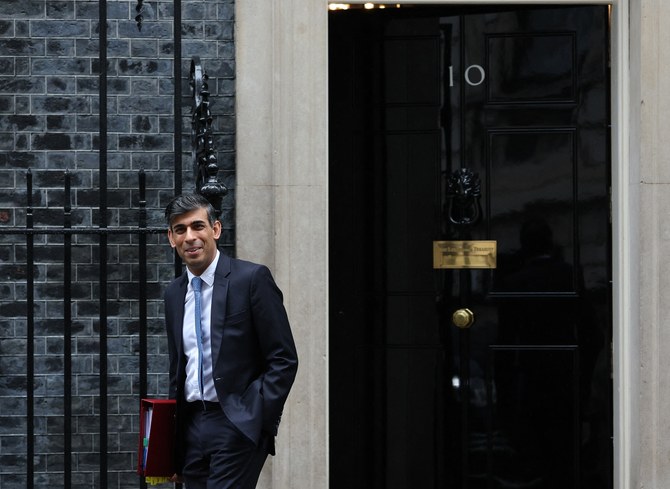Andrew Hammond
With the UK’s opposition Labour Party riding high in opinion polls, comparisons are often made between the expected 2024 election result and Tony Blair’s huge triumph in 1997. However, some Conservatives now fear an even worse outcome.
The specific reference here is to what is sometimes called the “extinction level event” of Canada’s 1993 federal election, which saw the-then ruling Progressive Conservatives drop from 167 seats to two. This ultimately led to the organization’s winding up and a merger into a new Conservative Party of Canada. On the face of it, there are some political similarities between Canada in 1993 and the UK in 2024. For starters, tactical voting in a first-past-the-post Westminster-type electoral system can give rise to unusual outcomes.
In 1993, the Progressive Conservatives won more than 15 percent of the Canadian vote, but secured less than 1 percent of the seats, finishing in fifth place. In the UK, meanwhile, tactical voting by voters supporting opposition parties in 2024 could accentuate the loss of Conservative seats. Secondly, as in Canada in 1993, the ruling British Conservative Party this year faces a vigorous challenge from the political right in the guise of Reform UK (formerly the Brexit Party), which is polling more than 10 percent nationally. Plausibly, this could split the center-right and right-wing vote in a way that allows opposition parties, especially Labour, to win even more seats than forecast.
A third issue is leadership. In 1993, then-Canadian Prime Minister Kim Campbell led the Progressive Conservatives in the context of a struggling economy following two big earlier election victories in 1984 and 1988 for Brian Mulroney, her more charismatic predecessor. While not identical, this is analogous with the challenge faced by UK Prime Minister Rishi Sunak after the unexpectedly big victory in 2019 of his flamboyant predecessor-but-one in 10 Downing Street, Boris Johnson. Yet, despite these parallels, it is most unlikely that the UK Conservatives will suffer the type of worst-case election scenario suffered by their Canadian cousins in 1993. Despite its huge problems, it is currently polling about 25 percent, well down on the approximately 45 percent secured in 2019, but strong enough, according to the Electoral Calculus prediction tool, to win 99 seats (down from 376 in 2019).
While nothing can be entirely ruled out in politics, these figures are likely to be around the floor rather than the ceiling for the Conservatives. Many pundits think it more likely that the opinion poll gulf between Labour and the Conservatives will narrow rather than widen in the weeks ahead. Indeed, in 1997, when the Conservatives’ standing in the polls was last about as low as today, the party had regained modest support by election day, but not nearly enough to keep hold of power – winning only 165 seats. While this is less than half the number in the previous parliament from 1992 to 1997, it comfortably avoided the Canadian 1993 meltdown scenario.
In this context, the key explanation for the rise in speculation of a potential extinction of the UK Conservatives probably lies more with disgruntled MPs in the party who are plotting against Sunak’s leadership and/or seeking for him to shift to a more hard-right, populist position on issues like immigration to counter Reform’s rise. Many of these MPs are supporters of ex-PM Johnson, who still craves a return to the top job in UK politics after his messy departure from power in 2022. While it is far from certain that Sunak will be the Conservative leader at the next election, the likelihood is that he will be. This is not least because his potential rivals know that the party is headed for probable defeat and would therefore prefer to sit this ballot out.
But Sunak still has a gargantuan political mountain to climb as he, like other previous prime ministers who take power midterm, tries to give himself sufficient time to establish himself before going to the polls. This was shown this week in a remarkable Deltapoll survey, which detailed how Labour leader Keir Starmer, who has done much to restore confidence in the party after the huge 2019 election loss, had opened up a 41 percentage-point lead over Sunak in terms of leadership approval. Sunak must also defy political gravity, given that no party in modern UK political history has won five elections in a row, as the Conservatives are now attempting. There is wide discontent with the ruling party, which is on its fifth prime minister in the past eight years, as Brexit and the COVID-19 pandemic have caused major convulsions.
If this was not bad enough, he also knows that Johnson (and indeed the other PMs who have left office in recent years, including Liz Truss) remain significant political thorns in his side. For instance, Truss is launching a book called “Ten Years To Save the West” in April. It is styled as “a call to action for fellow conservatives who share my belief in our nation and our way of life.” Truss has also set up a new backbench group of MPs called the Popular Conservatives. “PopCon,” as the movement calls itself, wants to see radical institutional reform and is campaigning against so-called woke ideas, restoring what it perceives as democratic accountability to the UK. It is also promoting populist, hard-right policies in areas like immigration.
Taken together, this toxic brew is why Sunak’s prime ministership is now perilously positioned. While he is most likely to last in office to fight the 2024 general election, the political winds are blowing very hard against him as he seeks to defy history and win a fifth term of office for the Conservatives.







